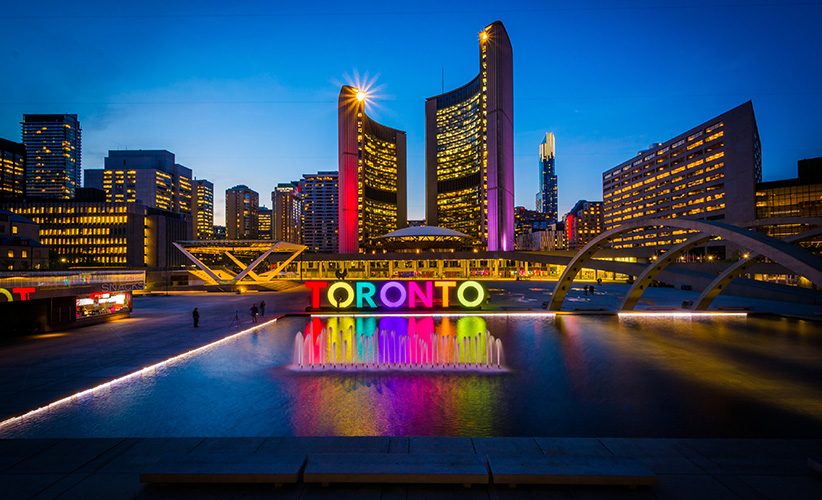HAPPY CANADA DAY!

Welcome to the new real estate reality in Toronto. It’s Canada day today and I’m up extra early recounting the blessings we have in this country and also reviewing how my week went and to be grateful for it. I couldn’t help but get reminded of whats happening in the market is reacting to the new reality of transacting real estate.
I wrote last week about how the state of affairs of real estate in Toronto along with hoping I would be able to purchase a property on that weekend. Well, that hasn’t happened yet and it’s not for lack of trying. My bride and I have been diligent in going out and looking at all new properties that are matching our criteria coming to the market but there is a bit of a delay in Sellers realizing that there isn’t a line of buyers waiting at the door. I figured I’d share three different stories for properties and sellers that we have come across since we started searching for our home. I usually don’t share stories about my business on here but since it’s my first hand account of my purchase, I don’t see the harm in sharing it. The stories are a bit extensive so I’ll break them up into three posts.
Story # 1 – The extra large bungalow
Our story of this prospect began when my bride and I were looking at a house across the street from this bungalow. The house we went to see was ok but a bit small for our liking and needed extensive renovations. The price was set by the seller and listing agent at $799,900 and offers were being reviewed in a week. We went through the old dreary kitchen into the shag carpet in the living room and basement to arrive to the rose scent filled back yard with link chain fence surrounding it and thought it was a bit too much at 800K. As we were exited the backyard through the side, we noticed a sign on this massive corner bungalow which seemed like it went on forever.
My bride was really taken by the look of the bungalow and asked me to find out how much it’s listed for. I quickly whipped out my phone and after a couple of clicks found out that it’s listed for $935K… WOW! That’s a big place but outside our budget.
Fast forward two weeks and now the $935K bungalow has been listed on the market for $799K with an offer date. I’m immediately pessimistic about the listing as usually an offer date means that the seller is expecting to get more than the list price. We schedule a visit to go see the house and found it not exactly what we wanted. Furthermore, the property we came to see before has a “SOLD OVER ASKING” sign on the listing. I got curious about the sold price and found out it was sold $100 over the asking. We decided that the large bungalow is a good option to have but we will keep looking.
I spoke with the agent the day after the offer date inquiring if they have been able to sell and found out they didn’t have any offers on the place. I inquired if they would be interested in entertaining an offer to which they agreed they would. I scheduled another visit to the home to critically look through it and do my research.
The house, while being a large bungalow sitting on a 50×100 foot lot, wasn’t really laid out very well. The house has four bedrooms and all are far too small for our use. We would have to remove one bedroom and move walls around to create a larger bedroom, upgrades the kitchen which hasn’t been touched since 1977 and the dishwasher has a sign on it that reads, “DONOT OPEN,” along with other quirks like a stand alone shower in the middle of the laundry room that we would have to take out.
I then turned my attention to the numbers. Mind you, I’m not looking at numbers of how much it would cost to do all this, I’m looking at what the value of the property is. Here’s a little lesson in how market pricing works:
When pricing a property, you have to keep an eye on what’s happening in the marketplace as well. If the market is on an incline, read Seller’s market, your expiries in the market place will soon be your market value and inversely when market is on the decline, which is what’s happening in Toronto right now, the current listing prices become the market value because buyers start looking at your competition to decide which property to purchase based on the level of completeness and price because they now have choice. Also, since the market is on the way down, the sold data for properties in the market are obsolete as the buyers and sellers are setting a new market price at every transaction based on the properties condition and competition.
Armed with this information, I started searching for what properties are currently listed and which properties recently sold. I had personally gone and seen almost all the properties that were on the list and found that while the large bungalow has been priced competitively, the price was based on the market numbers from three months ago and mostly on a renovated bungalow across the street that was sold for $935,000.
Toronto market saw a nice rally in pricing at the start of this year which has caused Seller’s to think their properties are worth $100,000 to $200,000 more that what they are. News reports like Home Prices Up by 33% has solidified this belief and it wasn’t without merit. I had mentioned in my pervious article how market is run by greed or fear and greed was running free in that market and is now lingering on part of the sellers while buyers are fearful as to what will happen.
Back to the large bungalow; I wait for couple of days so the agent has had the time to vet any rumours of offers they might have and ended up sending the seller an offer for their review. The offer wasn’t the best as I had to take into consideration the work that had to be done but it was also based on a comparable property that was sold just the week before. This property was a renovated bungalow, not on a corner but similar in size, and had a detached 2.5 car garage in the back and was originally listed for $797,000 then reduced to $787,000 and sold for $740,000.
I drafted an offer with our names on it and sent it off to the seller’s agent and got a nice note back the next day that read as follows:
Thank you for your offer. Sellers have rejected entertaining a sign back, I have attached a disclosure to such effect.
The sellers are not desperate as your offer may indicate you sense.
If you wish to submit an offer nothing less and certainly significantly more than the recent sale of (removed neighbouring property address) would be received, and only that only a possibility if it was unconditional and a perfect date to suit their desires.
This is the response of a seller who has been on the market for 21 days during this listing period and hasn’t had another offer. Their motivation is low at the moment hence weren’t willing to entertain my offer. They are asking $799K but expecting to get more than that with an unconditional offer… I had two words for them… GOOD LUCK!
As with any transaction, the deal is only made when both the buyers and sellers are willing to work together and come to an agreement. In this instance, it didn’t for us so we keep on moving forward.
If you’re a seller and are planning to make the most of your time on the market, I would recommend reading this article, really taking a look at your property and only show it to buyers that are really interested in your property. Let me explain:
- List your property at a price that you’re willing to accept. If you have your property listed at a low price, don’t expect to see buyers lining up to make offers or even see the property. I’m finding that if a property is listed really low, buyers aren’t even willing to spend time to go see the property.
- Don’t do offer dates
- Complete any outstanding items that need to be done; cut those hedges, clean out the garage, paint the house
These will help focus the type of buyer that will come to your house and hopefully get you an offer sooner than later.
If you have been thinking about buying real estate for a while and thought the market was too high, now is the time for you to start going out and seeing properties. If nothing else, it’s a good way for you to learn the market and find good deals. It’s better to pay lower price for a property than to buy high at a lower interest rate. I will talk more about this in a later post.
For now, I’m off to see more properties and help clients with their purchases and sales. I will be back with two more stories about what type of sellers we are seeing in the market today.







